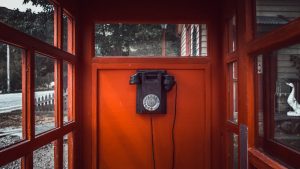Rural West Virginia's close-knit communities facilitate rapid information spread, including legal notifications. Unwanted call law firms face challenges, as aggressive practices foster fear and mistrust, hindering community engagement. Federal TCPA regulations are supplemented by local laws, with firms educating residents on their rights while pushing for stricter enforcement and collaborating on community solutions to combat unwanted calls.
In the tranquil landscapes of rural West Virginia, a unique challenge persists—unwanted calls from law firms have become an increasingly prevalent nuisance. This article delves into the intricate web of communication patterns within this region, examining how local communities are affected by aggressive legal marketing tactics. We explore the balance between consumers’ rights and businesses’ needs, offering insights into effective strategies for both legal protections and community engagement to mitigate the impact of unwanted call law firms in West Virginia.
Understanding Rural West Virginia's Communication Patterns

Rural West Virginia has unique communication patterns that significantly shape its residents’ interactions, including their experiences with unwanted calls from law firms. Many communities in this region rely on a tight-knit social network where news and information spread through word of mouth and personal connections. As such, legal notifications or advertisements often travel the same routes, potentially leading to an increased awareness of local law firms among rural residents.
Understanding these patterns is crucial for law firms operating within West Virginia’s rural areas. Adapting their communication strategies to fit the cultural norms and preferences of these communities can enhance client relationships and effectiveness. For instance, instead of relying heavily on telemarketing or mass mailers, which might be less effective due to lower call volumes and higher sensitivity to unsolicited contact, law firms could explore more personalized approaches, such as targeted direct mail or partnerships with local trusted entities, to reach their intended audiences.
The Impact of Unwanted Call Law Firms on Local Communities

Unwanted call law firms operating in rural West Virginia pose a unique set of challenges for local communities. These firms, often referred to as debt collection or litigation businesses, target residents with persistent and sometimes aggressive phone calls, seeking to recover debts or enforce legal actions. The constant barrage of unwanted calls can create a sense of distress and anxiety among the population, especially those already vulnerable due to economic hardships.
Moreover, the presence of these law firms contributes to a climate of fear and mistrust. Local residents may become reticent to answer phone calls, even from legitimate sources, due to the prevalence of harassment. This can hinder community engagement and the flow of important information, creating a barrier to access for essential services and support networks. As a result, unwanted call law firms’ activities have far-reaching implications, negatively impacting not just individuals but the overall well-being and cohesion of rural West Virginia communities.
Navigating Legal Protections and Community Engagement Strategies

In West Virginia, navigating unwanted calls falls under the jurisdiction of the Telephone Consumer Protection Act (TCPA), a federal law designed to curb intrusive telemarketing practices. Local laws and regulations also offer additional protections to residents dealing with persistent or harassing phone calls. When it comes to rural areas, where close-knit communities thrive, balancing legal safeguards and community engagement is crucial.
Unwanted call law firms in West Virginia play a vital role in educating both residents and businesses about their rights and responsibilities. They advocate for stricter enforcement of TCPA regulations and work with local authorities to develop community-based solutions. By fostering open dialogue and providing accessible resources, these law firms empower rural West Virginians to protect themselves from unwanted calls while preserving the unique character and relationships that define their communities.






